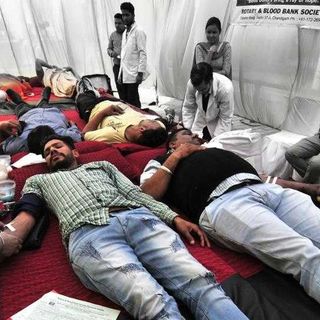
Know Your Rights: Property Rights for Women
A lawyer explains women’s rights related to entitlement and inheritance of property in India.

In Know Your Rights, we simplify the rights you’ve been given, so you know how to exercise them.
Many women are unaware of their rights regarding their share of family property. Under the law, a property may be movable such as cash, jewelry, debentures, and shares, or it may be immovable, such as vacant land, a flat or a bungalow.
Some think brothers or other male members in the family only have property rights, but this is far from true. In India, at present, in the absence of a Uniform Civil Code — a law if implemented, will replace all personal laws based on scriptures and customs of various religious communities — persons professing different faiths are governed by the laws of their faith in matters pertaining to inheritance, entitlement, and the sharing of property.
Siddharth Chandrashekhar, LL.M. (U.K.), a practicing advocate at the Bombay High Court, takes us through the basics when it comes to the controversial and ever-involving topic of women’s property rights.
Note to readers: For the purposes of this piece, we are focusing on property rights under the Hindu Succession Act.
Can a woman purchase and/or own property in her own right?
Yes, there is absolutely no bar on an Indian woman acquiring property whether through an inheritance (i.e. ancestral property) or purchasing property herself in her own name. She is the full owner of it unless she decides to share it with someone.
As a woman, married or not married, what are my hereditary rights regarding property?
You can inherit property in two ways: testamentary or intestate.
Testamentary implies the property is being inherited by virtue of the deceased person’s will. A will is a legal document that sets forth a person’s wish regarding the distribution of his or her assets. A will trumps all succession laws. In other words, if someone chooses to divide their assets unequally among their Hindu children, then the will’s wishes will be followed.
When a person dies without leaving a will, that means they are intestate. In this situation, their assets would be divided as per the law governing the religion of the deceased at the time of his or her death.
Since there is no Uniform Civil Code in India, every religion is governed by its own laws. Hindus, Buddhists, Jains and Sikhs are governed by one set of laws, i.e. the Hindu Succession Act; Christians, Parsis, Jews are governed by another, i.e. the Indian Succession Act; Muslims are governed by religious laws of the sect to which they belong. Thus, there is no single body of law relating to property rights in India.
Related on The Swaddle:
Family Law Reform Moves Away from a Uniform Civil Code — But Toward Gender Equality
Do my brother and I share the same rights regarding my parents’ property before I’m married?
Under the Hindu Succession Act, unmarried men and women have the same rights — an equal share — regarding their parents’ property.
What happens to the share after I’m married?
It differs under every personal law. But, under the law governing Hindus, married sons and daughters have the same rights — an equal share — in their parents’ property, thanks to a 2005 amendment to the Hindu Succession Act.
If my father or mother dies without a will, does property ownership transfer to their spouse or to their children?
It differs under every personal law. Under most laws, a certain share goes to the spouse, but the ratio depends on whether the deceased had any dependents (children and/or parents) alive when they died. Should a person’s father or mother die without leaving a will, a Letter of Administration will have to be obtained by their heir from the court within whose jurisdiction the deceased resided during their lifetime. The court will then divide the assets per the law of succession applicable to the deceased at the time of his/her death.
Do my children have the same rights as my brother’s children to property we inherited from a parent?
While you are alive, your children have no claim to their grandparents’ property. But in the event of your death, grandchildren from a son or a daughter will have the same rights to their grandparents’ property.
If I’m adopted, will I enjoy the same rights regarding my parents’ property?
An adopted child, male or female, enjoys the same rights in relation to their adoptive parents’ property. However, they hold no right to any property belonging to their biological parents.
Anubhuti Matta is an associate editor with The Swaddle. When not at work, she's busy pursuing kathak, reading books on and by women in the Middle East or making dresses out of Indian prints.
Related


Most Genetic Studies Use Only White Subjects, Leading to Limited Health Care Options for People of Color
